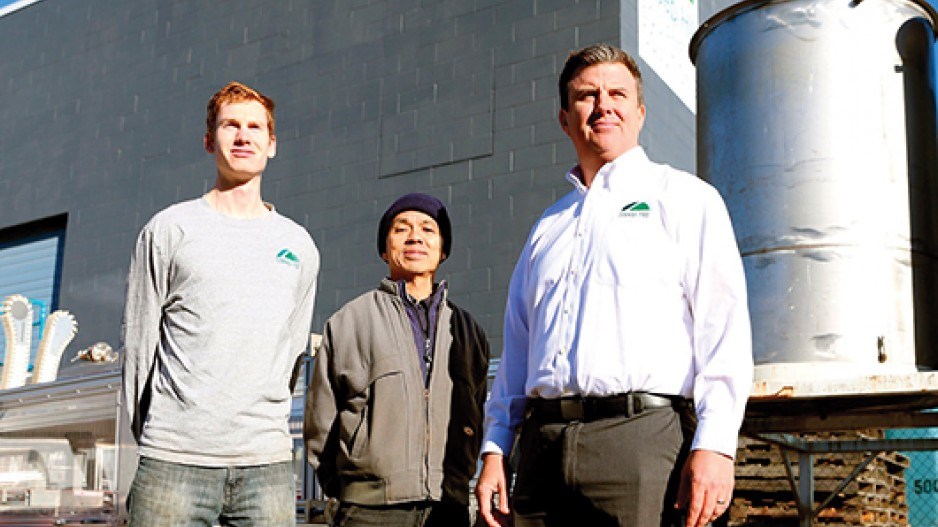Small enterprises and microbusinesses are fuelling growth in B.C.’s food processing industry, which accounts for almost 20% of the province’s manufacturing revenue.
Small businesses, with fewer than 50 employees, make up most of the $9.1 billion industry that’s made up of more than 950 companies.
“B.C. is really becoming known for a lot of family businesses and entrepreneurial companies that are small and are developing unique, niche products,” said James Donaldson, CEO of the BC Food Processors Association.
He added that B.C. has become internationally renowned for specialty products.
Second only to forestry, the food processing sector is helping to develop the province’s small but growing manufacturing sector. In 2015 alone, the industry grew by 9%. Donaldson said natural health products are helping drive that growth.
The number of small businesses (five to 49 employees) and microbusinesses (fewer than five employees) has helped drive growth in related sectors in the province such as industrial food processing equipment.
After establishing his flaxseed processing company in Halifax, Nova Scotia, Brent Larsen, president of Steep Hill Equipment Solutions, decided to expand to B.C. He recognized another business opportunity when he decided to sell some of the company’s excess equipment.
“I saw an opportunity for a reputable food processing equipment company here in the Lower Mainland,” Larsen said. “Customers kept coming, and it just hasn’t slowed down since.”
Larsen isn’t a manufacturer of food processing equipment. Instead, he recycles and refurbishes used equipment for resale.
Larsen said providing a source of food processing equipment allows the industry, primarily made up of small businesses, to buy needed tools at a discount and avoid import costs.
He said that his company also provides a valuable service to the industry by buying used equipment, allowing owners to recoup some of the original cost and turn idle assets into cash.
Access to affordable equipment is critical for B.C. food processors, who see growing input costs as one of the greatest threats to the industry.
Another issue highlighted by the BC Food Processors Association is the lack of skilled and unskilled labour. The association’s 2016 economic impact analysis warns that a lack of suitable labour could erode production and lower competitiveness.
While the industry has been growing, food processors in the province have been struggling with rising input costs and hiring difficulties. The sector’s profit margin, at 10%, is lower than margins in other provinces. For example, the profit margin in Alberta’s food processing industry is 16%; Ontario’s is 12%.




